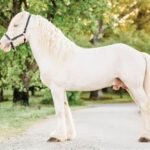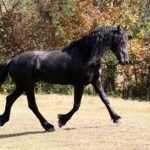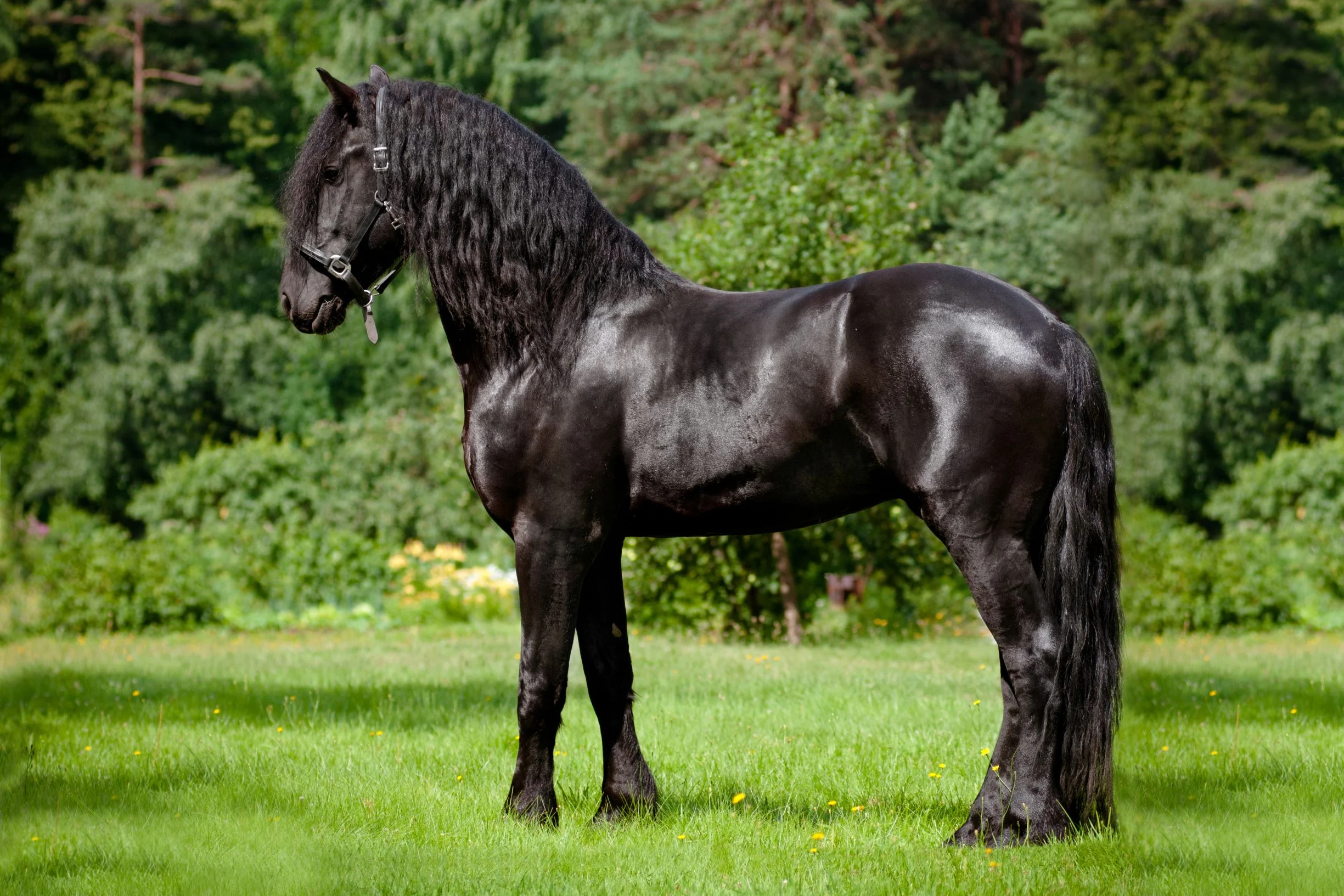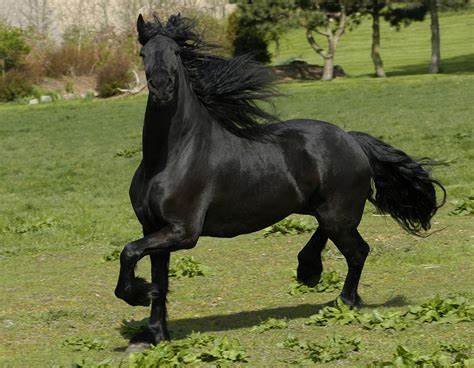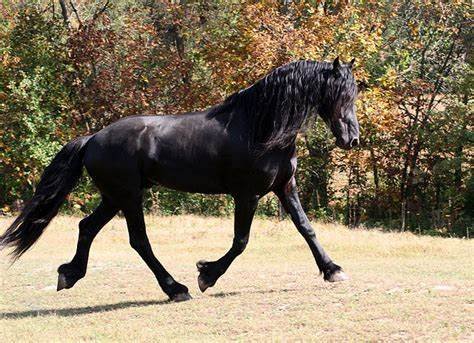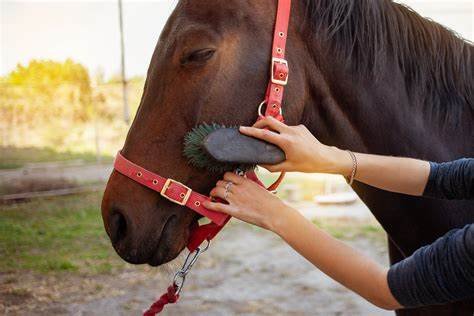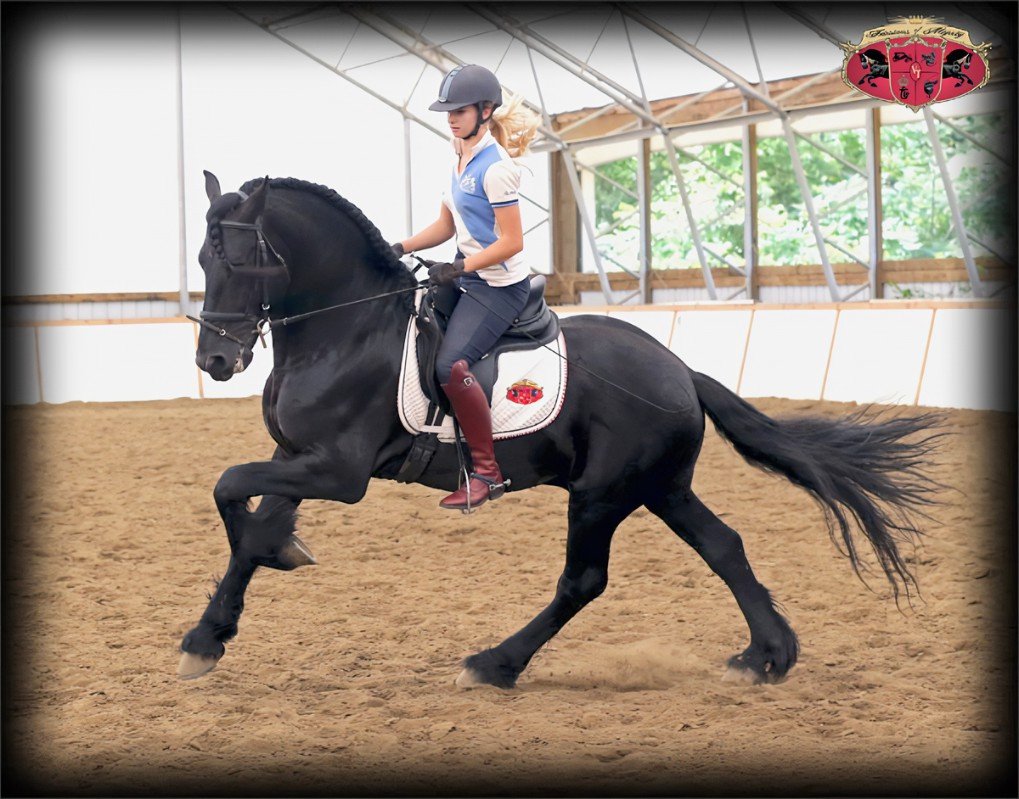Friesian horses are admired not only for their striking appearance but also for their distinct and often gentle temperament. Known for their intelligence, trainability, and strong work ethic, Friesians are a breed that easily bonds with their owners and handlers. However, understanding their unique temperament is essential for providing the right care, training, and environment for these majestic animals. In this article, we explore the temperament of Friesian horses, shedding light on their personality traits and how they interact with people, other horses, and different situations.
1. Gentle and Calm Disposition: One of the most well-known characteristics of Friesian horses is their calm and gentle nature. Despite their imposing size and powerful build, they are typically friendly and approachable. This breed is known for being particularly docile, making them excellent companions for riders of all experience levels.
- Friendly with Humans: Friesians are generally affectionate and social horses. They thrive in human interaction and enjoy bonding with their handlers. Their gentle demeanor allows them to form strong relationships with their owners and caretakers, making them ideal for both experienced equestrians and beginners alike.
- Tolerance for New Environments: Friesians are often tolerant of new environments and situations. This adaptability is one of the reasons they are used in a variety of disciplines, from dressage to driving. Their ability to stay calm under pressure makes them easy to handle in unfamiliar settings, whether in a competition or a new home.
2. Intelligent and Eager to Learn: Friesians are incredibly intelligent horses, which makes training them relatively straightforward. They tend to enjoy learning new tasks and thrive on mental stimulation. However, like many intelligent breeds, they can also become bored easily if not sufficiently challenged.
- Quick Learners: Friesian horses are quick to pick up on commands and routines. Their ability to grasp new concepts with minimal repetition makes them an asset in various equestrian disciplines, such as dressage, driving, and even therapy work. Their intelligence ensures they are versatile, easily adapting to new tasks or activities.
- Desire to Please: Friesians have a strong desire to please their owners, which makes them highly trainable. They respond well to positive reinforcement and gentle handling, and are often seen as eager to work alongside their riders. This makes them well-suited for roles that require precision and focus, such as in competitive sports or exhibitions.
3. Strong Work Ethic: Despite their calm temperament, Friesians are hardworking horses with a strong work ethic. They have a natural drive to perform tasks, making them excellent for a variety of work, from farm duties to competitive sports. This work ethic is evident in their eagerness to perform tasks that require strength and stamina, and they are often highly motivated by routine.
- Endurance and Strength: Friesians are often praised for their endurance and stamina. Whether pulling a carriage, competing in a dressage competition, or performing in films, they can handle physically demanding work with ease. Their ability to maintain focus and perform under pressure makes them reliable partners for long hours of work.
- Desire for Structure: Friesians tend to thrive in structured environments. They enjoy having a routine and clear expectations. This need for structure can be beneficial when training, as it helps them stay focused and engaged. In contrast, a lack of routine or consistency can lead to frustration or confusion for the horse.
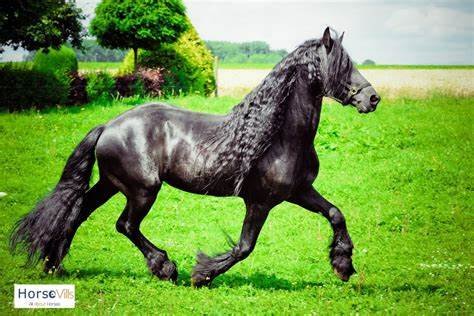
Discover Cream Acres
Explore the delightful world of Cream Acres and their offerings. For those interested in exploring different forms of online entertainment, you can find information about https://www.gambling360.com/live-dealer/.
4. Sensitivity and Emotional Awareness: Friesians are known for their emotional sensitivity. They are often deeply attuned to the moods and feelings of their riders or handlers. This sensitivity allows them to connect on a deeper level with their human companions, making them excellent choices for therapy work or any role requiring close human interaction.
- Highly Perceptive: Friesians have a keen sense of their surroundings and can pick up on the emotions of those around them. They are often described as intuitive and empathetic, which helps them bond with their owners. This emotional awareness can be a positive trait in both training and handling, as they can sense when a handler is anxious or confident.
- Reacting to Negative Emotions: While Friesians are generally calm, their sensitivity means they may react to negative emotions such as stress or anger. This is why positive, calm handling is essential when working with them. They are more likely to respond well to gentle communication and reassurance from their riders.
5. Affectionate and Social: Friesians are highly social creatures, and they tend to form strong bonds with other horses, as well as with humans. They enjoy companionship and often feel most comfortable when they have the opportunity to interact with others.
- Good with Other Horses: Friesians are typically easygoing with other horses, which makes them suitable for herd environments. They are often calm in group settings and can be trusted not to become overly aggressive or territorial. This makes them a good choice for those who want to keep more than one horse, as they usually get along well with their stablemates.
- Need for Companionship: While they enjoy interacting with other horses, Friesians also form deep connections with their human caretakers. They seek attention and affection and can become lonely or anxious if isolated for long periods. Regular interaction and mental stimulation are essential to their well-being.
6. Sensitivity to Training Methods: While Friesians are generally easy to train, it’s important to recognize that they respond best to positive reinforcement. Harsh training methods or inconsistency can cause confusion or even stress. Patience and clear communication are key when working with Friesian horses.
- Responding to Positive Reinforcement: Friesians thrive under gentle, consistent training. They respond well to reward-based methods and often become eager to repeat desired behaviors. Encouragement and praise are essential components of successful training sessions with Friesians.
- Avoiding Stress: As sensitive animals, Friesians can become stressed if training is too rigorous or if they are exposed to negative experiences. It’s essential to maintain a calm, patient approach to ensure that they remain comfortable and confident throughout the process.
Getting to Know the Gentle Friesian
Friesian horses are known for their calm and friendly temperament, making them ideal for riders of all levels. Their intelligent and willing nature allows for strong bonds between horse and owner, enhancing training and performance. When taking a break from equestrian activities, many enjoy the thrill of https://www.stellarspins.ai/en/online-baccarat as a fun and engaging pastime. Combining passion for horses with moments of relaxation creates a balanced lifestyle.
Conclusion: Friesian horses are known for their gentle yet powerful temperament, making them highly desirable companions in a variety of settings. Their intelligence, strong work ethic, and emotional sensitivity make them easy to train and a joy to work with. Understanding their unique traits, including their need for structure, social bonds, and positive reinforcement, is crucial for fostering a successful relationship with these magnificent animals. By providing the right environment and approach, Friesian horses can thrive and continue to captivate their owners with their beauty, grace, and willingness to perform.



